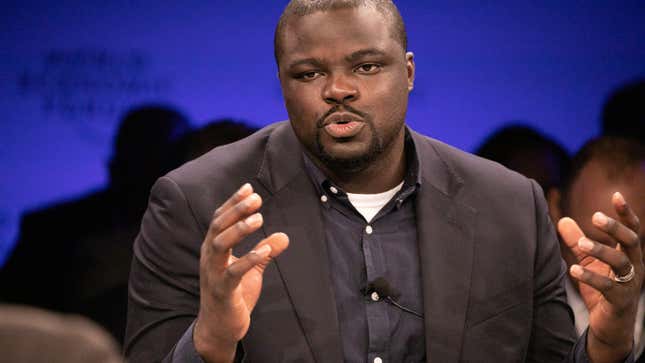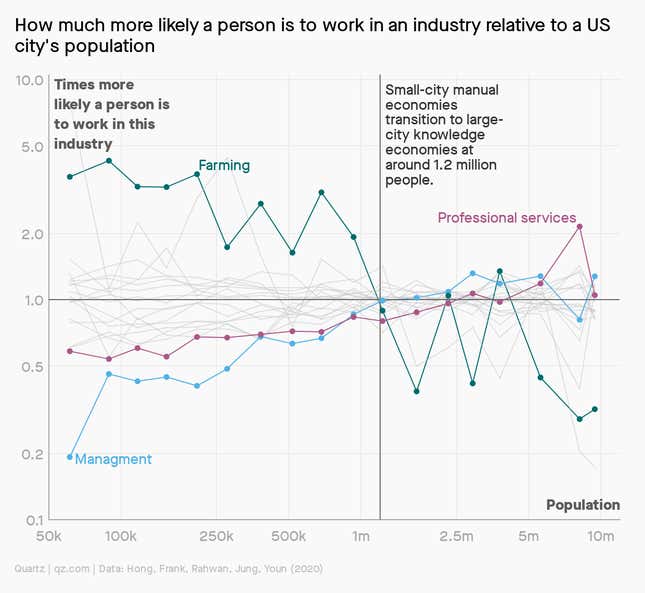Good morning, Quartz readers!
Here’s what you need to know
A $500 billion relief bill is expected to fail in the Senate. Democrats are likely to filibuster the Republicans’ Covid-19 support package, arguing the measure is too meager. Washington, meanwhile, was buzzing about an interview in which president Donald Trump said he downplayed the threat of the coronavirus pandemic as it was escalating.
Pelosi warned Britain over Brexit. The House speaker said there was “no chance” of a US trade agreement if the UK goes ahead with a plan which could give ministers the power to ignore part of its EU divorce treaty and undercut the Good Friday agreement with Northern Ireland when it exits the bloc.
TikTok might not be sold after all. The ByteDance-owned platform is reportedly in talks with the US government to work on a deal that will allow the app to keep operating, now that China has made a sale of its US business more difficult. Separately, the US revoked the visas of more than 1,000 Chinese students and researchers.
Malls saved JC Penney. The store chain is selling its retail business to two mall operators, avoiding a liquidation that would have cost thousands of jobs. Simon Property Group and Brookfield Partners are buying the century-old company’s retail business for $800 million in cash and debt. Its creditors will own a chunk of its real estate, in a deal valuing JC Penney at $1.75 billion.
Obsession interlude: Beyond Silicon Valley
To understand a Quartz obsession, it helps to know who to follow. Here’s one person shaping the tech world beyond Silicon Valley:

At 29, Iyin Aboyeji’s CV already includes building two of Africa’s best-funded startups. In 2014, he co-founded developer outsourcing firm Andela, which has since raised over $180 million from investors including the Chan Zuckerberg Initiative, Serena Williams, and an investment firm co-founded by former US vice president Al Gore. Two years later, Aboyeji moved on to launch Flutterwave, a payments processing firm that has since grown from Nigeria to enabling payments in over 40 African countries. Today, Aboyeji is an investor himself, providing fast-growing, early-stage African startups with crucial funding.
Keep up with innovators like Aboyeji as part of our Beyond Silicon Valley obsession.
Charting emerging knowledge economies
What does it take for a city to jump into the knowledge economy? A new study found one key factor: a population of at least 1.2 million.
Physicist Inho Hong from the Max Planck Institute looked at the industry composition of 350 US metro areas between 1998 and 2013. He and his team found that 1.2 million people is the threshold between economies based on manual labor and those based on knowledge and innovation.
Hong and his colleagues were trying to figure out whether all urban areas follow the same path as they grow, a concept they borrowed from biology. Their data analysis suggests the answer to that question is “yes.”

Civilization and its counterfactuals
Counterfactual /ˌkaʊntəˈfaktʃʊəl/, (adjective), relating to or expressing what has not happened or is not the case.
Good decision-making requires imagining the outcomes of different potential choices, all but one of which will never actually occur. The road not taken is called the counterfactual, and we rely on it every day.
How many lives would have been saved if Covid-19 tests in the US had worked from the start? Would you have gotten the job if you hadn’t been late to the interview? Counterfactual thinking is an essential part of decision-making, but we don’t know much about how people can get better at it.
In our latest field guide, we profile one attempt to answer that question: a research project called FOCUS, sponsored by the research branch of the US intelligence community. FOCUS set out to study the science of decision making and forecasting using simulations and games, including a pandemic simulator, and the popular computer game Civilization V. Read more here.
✦ Don’t spend the rest of your life wracked with regret about not becoming a Quartz Member. Sign up today!
We’re obsessed with sports branding
It’s not just fun and games. Football is far and away the most popular sport in the US, an honor that comes with a near endless supply of pageantry in the form of military flyovers, mascots, and squads of cheerleaders. Today’s National Football League kickoff won’t have any of that. We can still take this time to obsess over the colors, logos, uniforms, and mascots designed to bind fans closer to their teams and, of course, sell them merchandise. No matter if your favorite franchise is named for a bird, a cat, or a pair of socks, let’s rep our colors with the Quartz Weekly Obsession.
Surprising discoveries
Martha Stewart CBD gummies have arrived. The product, which will come in flavors like kumquat and huckleberry, is a joint offering between Stewart and Canopy Growth.
Apple’s iMask only covers your mouth and nose. The in-house designs are intended for corporate and retail employees.
Maybe all the mammoths just flew away? The construction site for a new airport in Mexico is now the world’s leading site for skeletons of the Ice Age elephant ancestor.
One man’s satanism is another man’s kitsch. After a high-profile Airbnb user complained about his host’s decor, the homeowner defended his decorations.
China’s ambassador to the UK “liked” a porn tweet. The embassy claims Liu Xiaoming’s Twitter account, which also liked tweets critical of the Communist Party, was hacked.
Our best wishes for a productive day. Please send any news, comments, counterfactual scenarios, and AppleCare protection for overpriced face masks to hi@qz.com. Get the most out of Quartz by downloading our app on iOS and becoming a member. Today’s Daily Brief was brought to you by John Detrixhe, Jackie Bischof, Jane Li, Tripti Lahiri, Susan Howson, and Max Lockie.